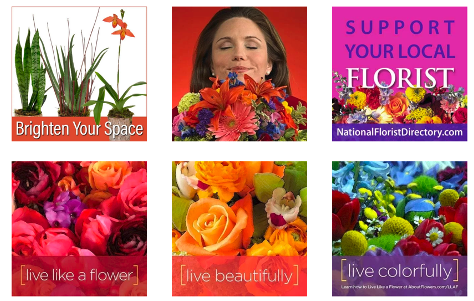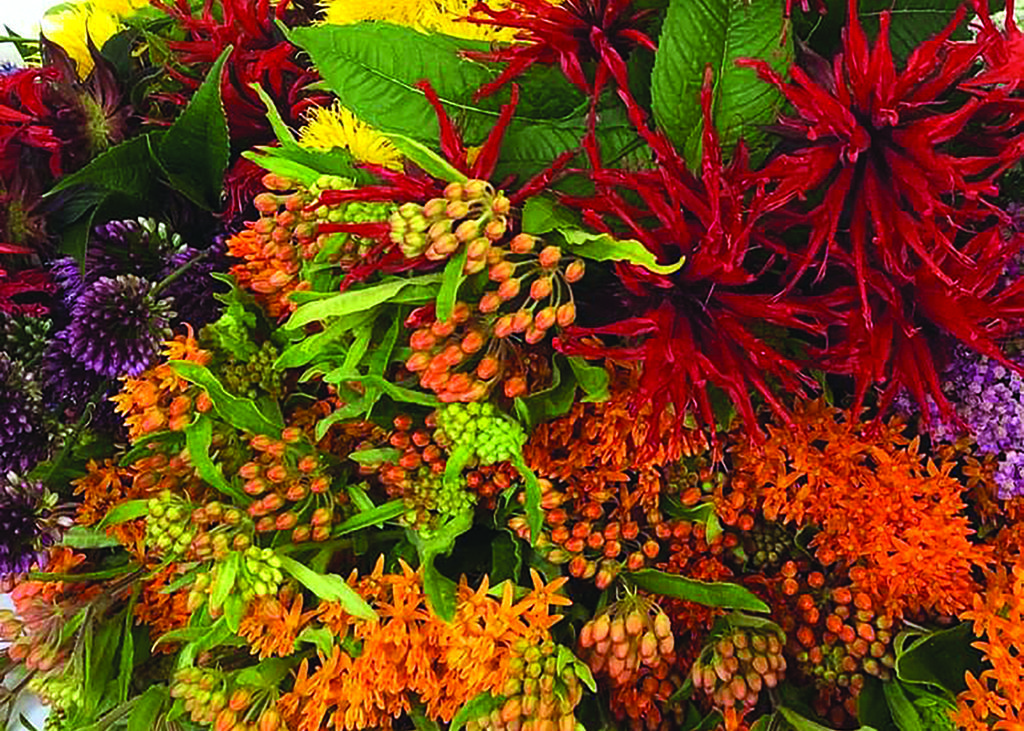 The ongoing COVID-19 crisis has propelled floral industry businesses into a surreal new normal. Among the top concerns, according to volunteer leaders with the Society of American Florists: cash flow and labor.
The ongoing COVID-19 crisis has propelled floral industry businesses into a surreal new normal. Among the top concerns, according to volunteer leaders with the Society of American Florists: cash flow and labor.
“Customers are not buying flowers, orders are being canceled,” said SAF Next Generation Task Force Member Tyler Meskers of Oregon Flowers in Aurora, Oregon, noting that the company is also still waiting on routine payment for some Valentine’s Day orders. “We need to go back to normal business.”
In Miami, SAF Board Member Oscar Fernandez said Equiflor-Rio Roses is “very concerned about the well-being of all of our associates and making sure that everyone is following the CDC guidelines. We have a skeleton crew coming into the office while everyone else works from home.”
The situation, Fernandez added, “is a complete unknown. We’ve always treated our growers, customers and associates the same and in a time of uncertainty. Now more than ever, it’s extremely important that we call keep the lines of communication open. We’re all in this together.”
Generating Revenue, Maintaining Cash Flow
Retail florists are working to adapt to the situation by ramping up efforts to connect with customers online and social media and make the most of every sale — and they’re also looking for ways to cut costs. (Read more about marketing ideas, including how to make the most of SAF research that shows flowers can reduce feelings of anxiety and stress.)
In Memphis, SAF Board Member Michael Pugh, AAF, said he is “limiting SKUs on the web, closing retail locations to walk-in customers and only filling web and phone customers.” He’s also limiting nonessential purchases as he waits on more clarity from the government on what business owners and individuals can expect.
“Cash flow is going to be a critical issue to staying afloat,” he said.
SAF Retailers Council Member Brian Kusuda of Jimmy’s Flowers in Ogden, Utah, said his greatest concern this week is “how to still create revenue and generate sales in this unstable economy, while implementing new safety protocols and working with limited staff” as several employees self-quarantine.
Kusuda added that, in addition to his commitment to his staff, he feels a strong sense of loyalty to industry partners — wholesalers and growers — and the impact reduced consumer demand is having at all levels.
“It is easy to cancel all of our standing orders and not order any flowers — to shut the store down essentially — but that will really hurt all levels of the industry,” he said. “Growers can’t stop the product from growing, wholesalers need to have retailers to sell to, and trucking companies need product to move.”
For now, he and his team are working hard to think creatively when it comes to redirecting lost sales.
“While we can’t sacrifice the safety and health of our employees or customers, we should all try to do what we can to safely sell and delivery product through these uncertain weeks and possibly months to help all levels of the industry,” he said. “There could be great opportunity to sell the joy that flower brings as more people are in their homes and need something to give them a positive spark.”
Jodi McShan, AAF, of McShan Florist in Dallas echoed the importance of thinking through the ripple effects along the industry chain — along with the need to stay informed.
“Even if you are fine, your wholesaler may shut down because it is part of a larger organization,” said McShan, a member of SAF’s Next Gen Task Force. “The farm may be good to go, but the airlines may stop coming to your airport or you can’t get into the airport to get product. Stay on top of things and make the best of it — it’s a great time to spread joy through flowers. The more you can be up to speed and protect your employees and keep your customers informed, the better.”
(SAF is currently working on an update to current, evolving supply chain issues. Look for additional information soon in member communications.)
In Towson, Maryland, SAF Board Member Kaitlin Radebaugh, AAF, is taking proactive steps with her team at Radebaugh Florist & Greenhouses aimed at protecting employee health and instilling confidence in consumers.
“We have enacted a no-touch delivery policy, where all arrangements, flats, etc., are being left on doorsteps and the customer is being called upon delivery, and we are no longer delivering to hospitals,” she explained. “We have closed our walk-in cooler to the public, but we are still offering our 50 percent off cut flower sale — the shop design or store employee will select the flowers.”
Far from backing off marketing, “we are pushing delivery, offering half-off delivery this week just to combat the lost walk-in traffic,” she added.
Likewise, SAF President Chris Drummond, AAF, PFCI, of Penny’s by Plaza Florist in Philadelphia said he is doubling down on marketing efforts, especially online. After reviewing his web analytics, he realized consumers were still heading to his website but many were “information seekers, not buyers, conversion rate is down.” Still, the traffic spells opportunity, he said. “Florists should focus on their website and display good messaging, a wide variety of price points, and change items based on click data, replacing non-popular items quickly,” he added.”
But the challenges are real and many, Radebaugh said, noting that restrictions being adopted across the country on business operating hours and crowd size continue to pose new challenges.
“Cash flow — if you haven’t thought about that you should, now,” she said. “How long can you float employees with sluggish sales? Expect to be getting paid at a slower rate as well — all corporate clients are feeling this.”
SAF Retailers Council Member Rakini Chinery, AAF, AzMF, of Allan’s Flowers in Prescott, Arizona, said she’s been “cutting everywhere right now to save.
“Just this morning we reached out to local thrift stores to see about buying their entire stock of vases and found some of them really receptive and one offered vases to us at 10 cents each,” she said. “We have to find every area to save money right now, to be prepared to ride this out as long as necessary.”
Workforce Concerns
Questions of how to maintain a healthy workforce safely — and whether shops need to make hard decisions on staffing also are on the minds of SAF’s volunteer leaders this week, especially as employees (and owners) also deal with the reality of school-aged children being out of the classroom for weeks to come.
SAF Next Gen Task Force Member Eileen Looby Weber, AAF, of Lake Forest Flowers in Lake Forest Illinois, said these are the issues she’s grappling with now: “ forced to reduce labor and the impacts on everyone financially.”
Next Gen Task Force Member Carly Anechiarico of Blossom Flower Shops in Yonkers, New York, shared similar concerns. “ being able t
o hold onto the wonderful talent we do have while not overstaffing through a slow period or over exposing employees and customers,” she explained. “We are doing our best to be fair in how we cut the hours and maintain moral throughout.”
In Memphis, Pugh said this week he’s been “focused on determining volume for staffing – offering those that need to work as many hours as possible and seeking volunteers to stay home.” The shop also is “considering creative ways to fill orders, such as having employees work at night, when another caregiver might be at home to watch small children and create back stock,” he added.
Cameron Pappas of Norton’s Florist in Birmingham, Alabama, said it was “very difficult” this week to create a schedule with reduced hours for employees — but doing so was a necessary measure, and, overall, his team was happy for the available hours.
“I’m very concerned about the livelihoods of our employees,” said Pappas, a member of SAF’s Next Gen Task Force. “Norton’s has been here for 99 years, and we will survive this. The bright side of is that aren’t being temporarily laid off, for now.”
In Utah, Kusuda said Jimmy’s is “trying really hard to not lay anyone off, but rather equally cut back our hours across all employees and ask for volunteers who are willing to take extended time off.”
In an SAF webinar held March 17, Drummond advocated a similar proactive approach with staff, noting that business owners and managers might be surprised by the number of team members who are open to cutting back on hours, to spend time with family or address caretaking concerns, or out of concern for their own health.
“The key is you have to ask them,” he said. “You have to communicate. Don’t assume.”
In Wichita, Kansas, SAF Retailers Council Member Jennifer Barnard of Tillie’s Flower Shop said she too has been communicating this week with staff about compensation concerns, should they lose hours. (Confusion about federal efforts to assist Americans through the crisis hasn’t helped, she added.) One challenge that feels very specific to the COVID-19 outbreak: cleaning supplies.
“It’s been very difficult to find cleaning and disinfecting materials to properly clean and disinfect the shop,” Barnard said. “We have some, but when those run out, I’m not sure what we will do.”
Like many, Chinery noted that one of the most challenging aspects of the current situation is the uncertainty.
“I’m most concerned about making it possible to keep all of my employees employed,” she said. “As this situation evolves, and if there is a drastic reduction in our sales, I have no option but to cut hours. It’s scary for me to think that some of my employees may not have a job if this continues into summer.”
Concerned about financial planning during the COVID-19 crisis? Join Floral Management magazine contributing writers Derrick Myers, CPA, CFP, PFCI, and Paul Goodman, MBA, PFCI, on Thursday, March 19, at 2 p.m. EST for an SAF webinar on best practices in managing COGS, labor, cash flow and more.
Note to readers: SAF is closely monitoring the evolving situation with COVID-19. Please check our webinars page for an updated list of upcoming sessions. Look for much more coverage of supply chain issues, HR concerns, financial management advice and more via SAF publications,safnow.tempurl.host and our webinar programming. Have a story angle you want us to cover? Email mwestbrook@safnow.org.
Mary Westbrook is the editor in chief of Floral Management magazine.



















